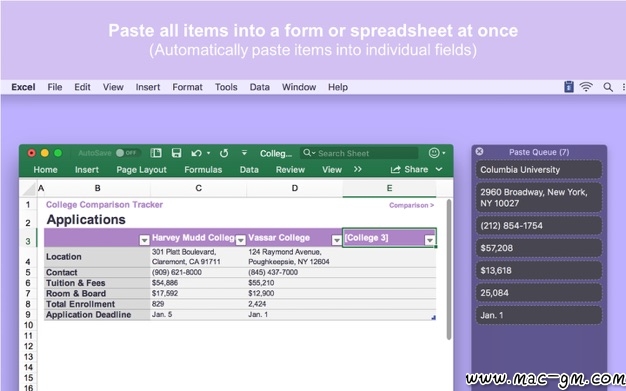
DEBUG ) # create file handler which logs even debug messages fh = logging. Previous simple module-based configuration example:
#SET A PASTE QUEUE CODE#
The logging calls in theĪpplication code will remain unchanged. This up, simply configure the appropriate handlers. Text file while simultaneously logging errors or above to the console. Will be beneficial for an application to log all messages of all severities to a Minimum or maximum quota for the number of handlers you may add. Works for more threads than shown here, of course. This shows the logging output interspersed as one might expect. Shows logging from the main (initial) thread and another thread: Logging from multiple threads requires no special effort. 23:47:11,673 - spam_application - INFO -ĭone with auxiliary_module.some_function() 23:47:11,670 - spam_application - INFO -įinished auxiliary_something 23:47:11,668 - spam_application - INFO -Ĭalling auxiliary_something 23:47:11,665 - spam_application - INFO -Ĭreated an instance of auxiliary_module.Auxiliary

23:47:11,663 - spam_application - INFO -Ĭreating an instance of auxiliary_module.Auxiliary info ( 'done with auxiliary_module.some_function()' ) info ( 'calling auxiliary_module.some_function()' ) auxiliary_module. info ( 'finished auxiliary_something' ) logger. info ( 'calling auxiliary_something' ) a. info ( 'created an instance of auxiliary_module.Auxiliary' ) logger. info ( 'creating an instance of auxiliary_module.Auxiliary' ) a = auxiliary_module. setFormatter ( formatter ) # add the handlers to the logger logger. Formatter ( ' %(asctime)s - %(name)s - %(levelname)s - %(message)s ' ) fh. ERROR ) # create formatter and add it to the handlers formatter = logging. DEBUG ) # create console handler with a higher log level ch = logging. Import logging import auxiliary_module # create logger with 'spam_application' logger = logging.

Opening the same log file multiple times.
#SET A PASTE QUEUE HOW TO#

Deploying Web applications using Gunicorn and uWSGI.Logging to a single file from multiple processes.Imparting contextual information in handlers.Using Filters to impart contextual information.Using objects other than dicts to pass contextual information.

Using LoggerAdapters to impart contextual information.Adding contextual information to your logging output.Running a logging socket listener in production.Sending and receiving logging events across a network.


 0 kommentar(er)
0 kommentar(er)
